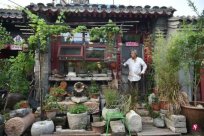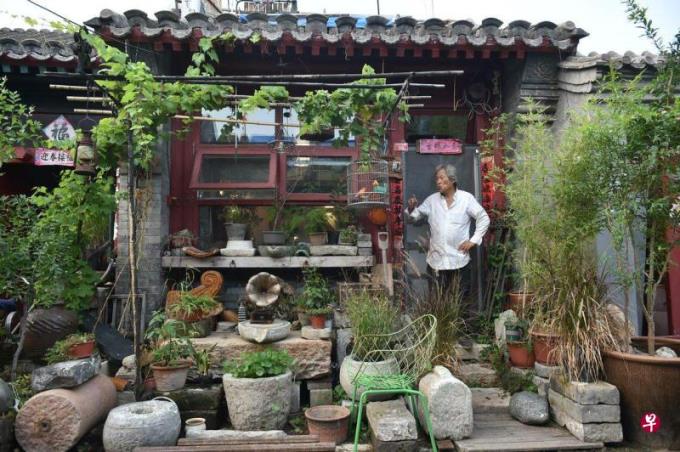
"There are a lot of people moved out of our hutong, and about three -fifths. Most of the residents are now over 60 years old, and there are few young people."
65 -year -old Beijing Hutong resident Yao Jianhua introduced the situation of Hutong to reporters. While sharing the unique landscape of Hutong proudly, there was a little emotion in words.
Hutong is one of Beijing's most iconic cultural symbols, but these urban landmarks with more than 700 years have undergone tremendous changes with Beijing's rapid urbanization in the past few decades.
From the 1970s to the early 2010s, Lao Hu, located in the golden area of the second ring of Beijing center, experienced a wave of large -scale demolition.Less than 1,000 years.
Until 2017, the Beijing Municipal Government proposed that "the old city cannot be demolished again" in the Beijing Urban Master Plan (2016-2035), and the development of the Beijing Hutong will be demolished from large-scale, which clearly shifts to cultural protection and repair.
However, how to maintain the old facilities is a more difficult challenge than the dismantling of rebuilding. At the same time, the rapid aging of hutong residents also means that the traditional lifestyle of the old Beijingers in the alley is accelerating.
Yao Jianhua is one of the few old Beijingers who still live in the hutong.He and his wife live in public rental houses of less than 20 square meters. The living room after entering the door is placed with simple furniture and electrical appliances such as dining tables, sewing machines, and televisions.Mattress.
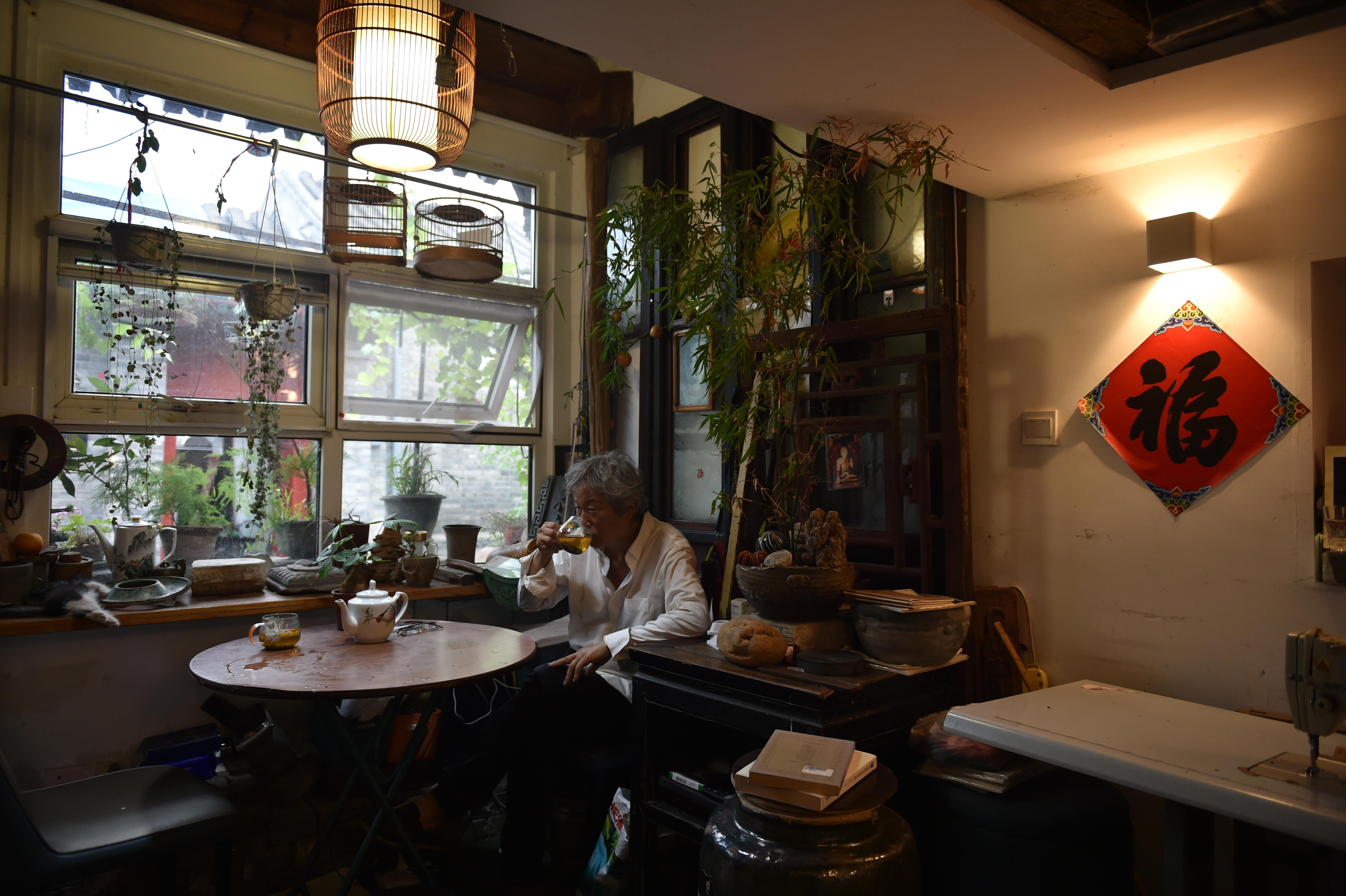
But Yao Jianhua knew how to use the space to use space and made the narrow roof into a pigeon -raising area and a rest area.
Yao Jianhua was on a TV show about the renovation of the old house in 2019. The filming team arranged a special person to assist him in renovating the living environment. The biggest change after the renovation is that there is a kitchen and an independent toilet with a smoking system in the family.Before the renovation, Yao Jianhua had to step out of the house regardless of the wind and rain, went to the toilet at the public toilet, and boiled in a narrow ventilation of less than one meter below the ladder.
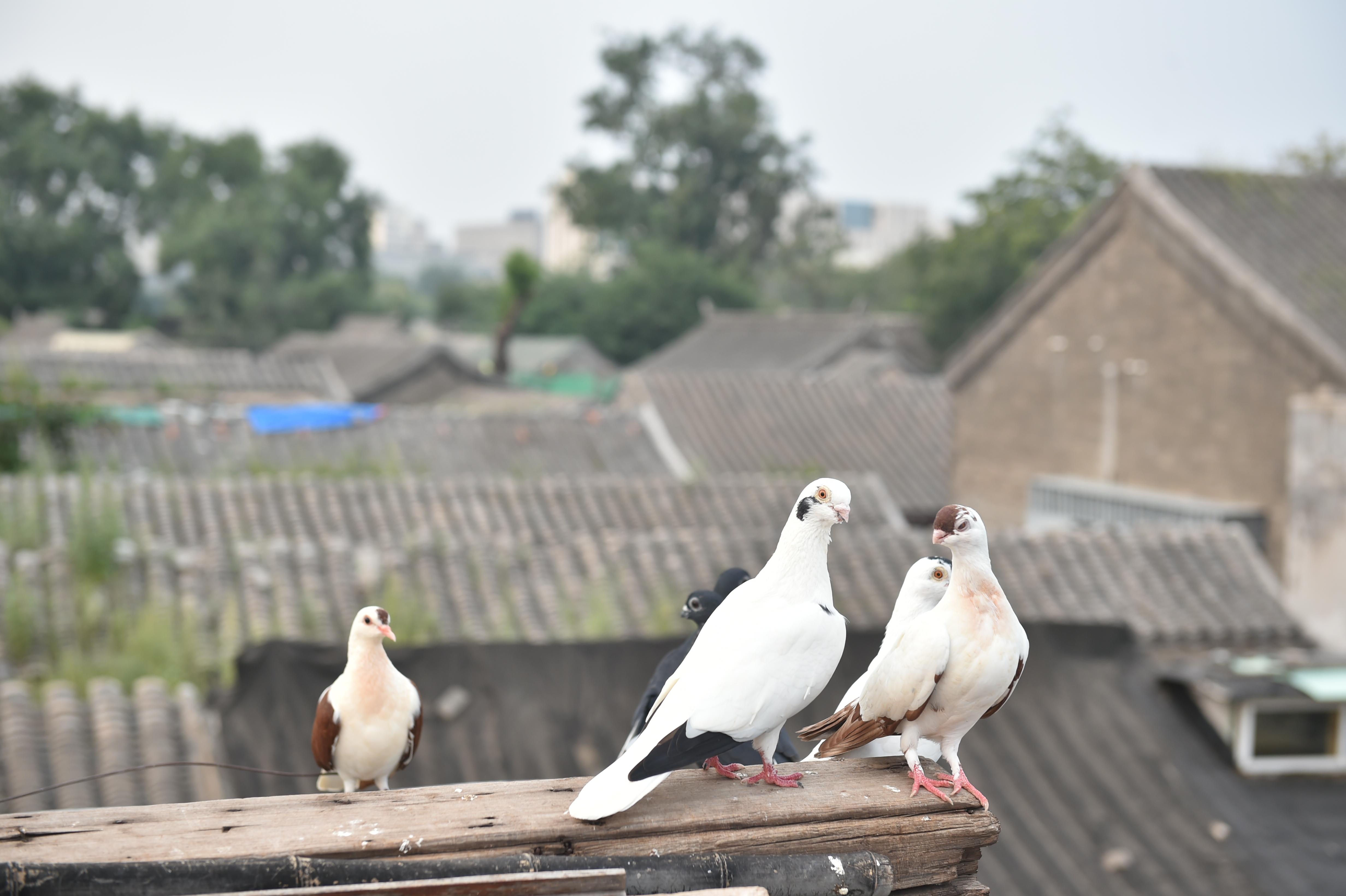
Repairing project improves the hardware facilities of Yao Jianhua's house, but the problem of limited room space cannot be completely solved by renovation.
Yao Jianhua's interest is to collect old hutong things. The large wooden doors, screens and door pillow stones stored in his room form a strong contrast with the narrow space.His wife often complains that there are too many miscellaneous things in the family, but Yao Jianhua is used to such a living environment. The crowded space and the old -fashioned old things are extremely precious old Beijing feelings and history in his mind.
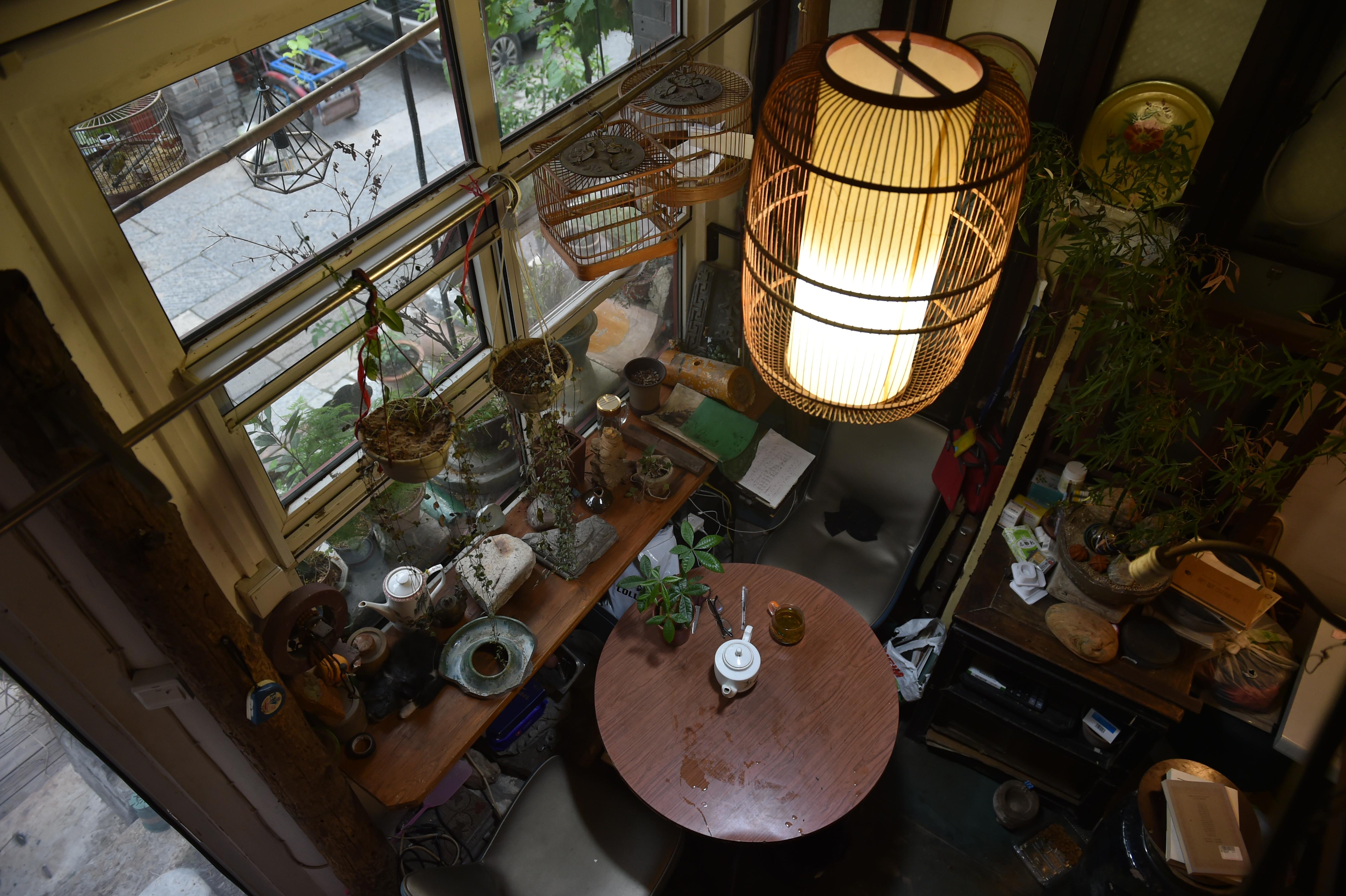
There is also an important realistic consideration in Housing Hutong. Yao Jianhua's public rental housing rent is only 50 yuan (N $ 9). This low rent is simply unimaginable in other parts of Beijing Second Ring Road.
Yao Jianhua said in an interview with Lianhe Morning Post: "If the state lets go in the future, we must listen to the party command, but we are still willing to live here. We are so old that it is not particularly convenient to move to the Fifth Ring and Sixth Ring Road."
But Mrs. Yao's views are different. Listening to this topic, she talked excitedly: "Of course, go to the tall building, what's the use of living here."
The limitation of space and the old of facilities is the reason why many old Beijingers choose to move out of the alley. Few young Beijingers are willing to live in the old hutong house.
Chen Fang (pseudonym, 70 years old, part -time cleaners), who grew up in an alley from an early age, moved out from the demolition plan in the 1980s, and moved out of the Hutong and obtained a two -bedroom suite in Beijing Second Ring Road.Today, Beijing has no such excellent demolition compensation conditions. At present, the government implements an application for rent -up plan in some hutongs to select the tenants in the Tengzhi area to selectively refund the lease. The resettlement listings are generally in remote areas such as the five -six ring such as Tongzhou.
For the preservation of Hutong culture, many people, like Chen Fang, prefer the comfortable living environment in high -rise buildings on the one hand, and on the other hand, they believe that these historical buildings full of childhood memory and the lifestyle of old Beijingers should be obtainedSave, the heart is full of contradictions.
Chen Fang said in an interview: "After entering the high -rise building, of course, life has improved. There was no heating when I lived in the hutong. Can you imagine that kind of life? But many old Beijingers grew up in the hutong.This is an old memory that the old Beijing people don't want to lose. "
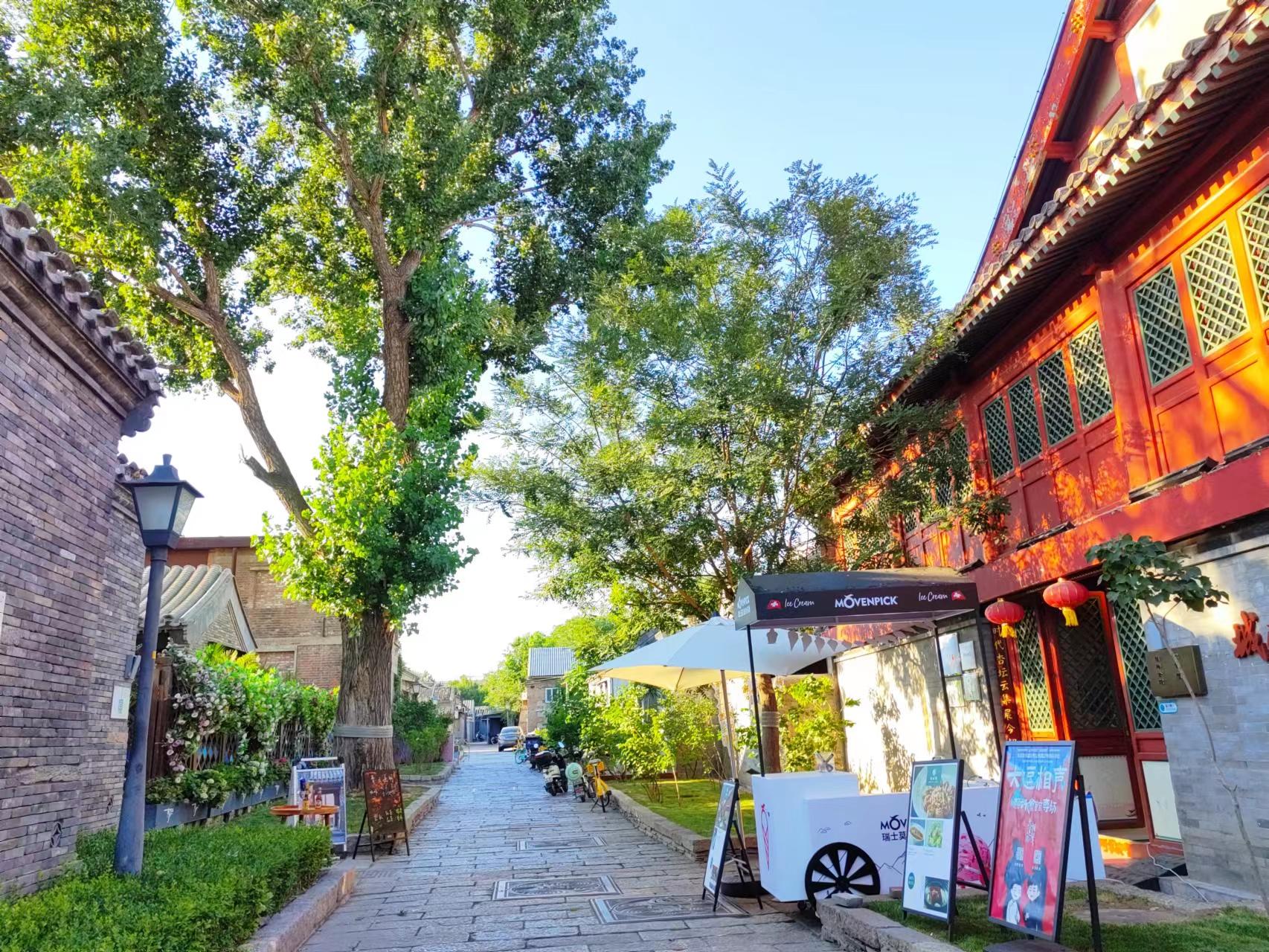
The appearance and function of Beijing Hutong are undergoing a transformation. Some of the hutongs now find new commercial uses and develop into fashion restaurants, cafes and cultural and creative stores.The tug of saw between commercial development and the protection of the original cultural protection of the alley has continued to attract the attention of the outside world; after this generation of old Beijing Hutong residents withdrew from the historical stage, more housing housing will be vacant. What kind of new appearance will the Hutong show?
Journal of Chinese Architecture and Urbanism, the editor -in -chief of Donia Zhang, in an interview: "Creating revenue through commercial development is of certainly preserving the original appearance of Hoho and let visitors understand the old Beijing style style.One way, but this method may also cause some former residents. There is no simple solution for this problem, but I think it should be rebuilt in accordance with the original form and style. The change is the eternal truth. "
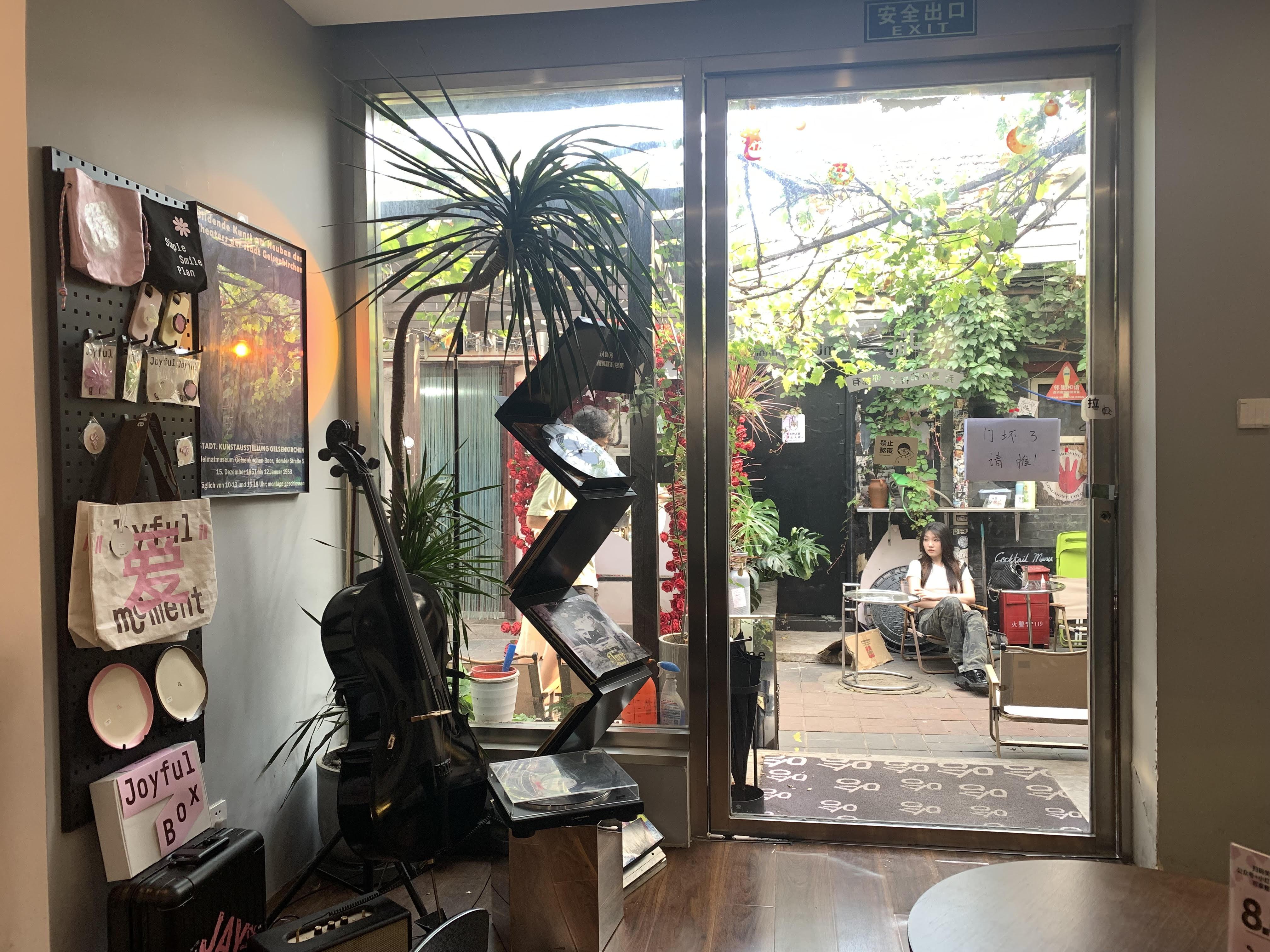
Zhang Xiaodong is also a scholar of the Architectural Humanities Research Association.She predicts that ten years later, most of the old Beijing Hutong may be like Nanfuku Lane, with many shops facing domestic and foreign tourists and selling traditional Chinese art.Many re -decorated courtyards will also become teahouses, cafes, restaurants, etc.
She said: "This result is inevitable. Modernization has put a lot of pressure on the use and value of land. These traditional courtyards cannot become the way most people live in Beijing."

